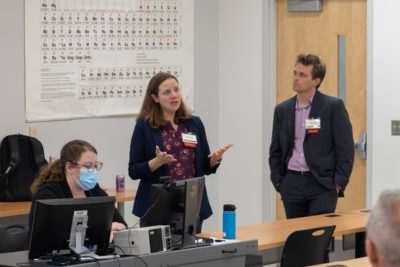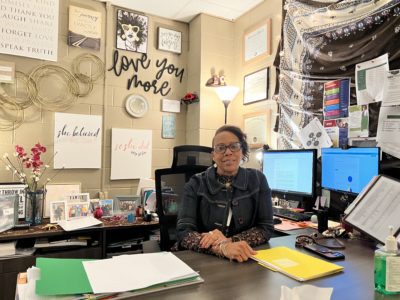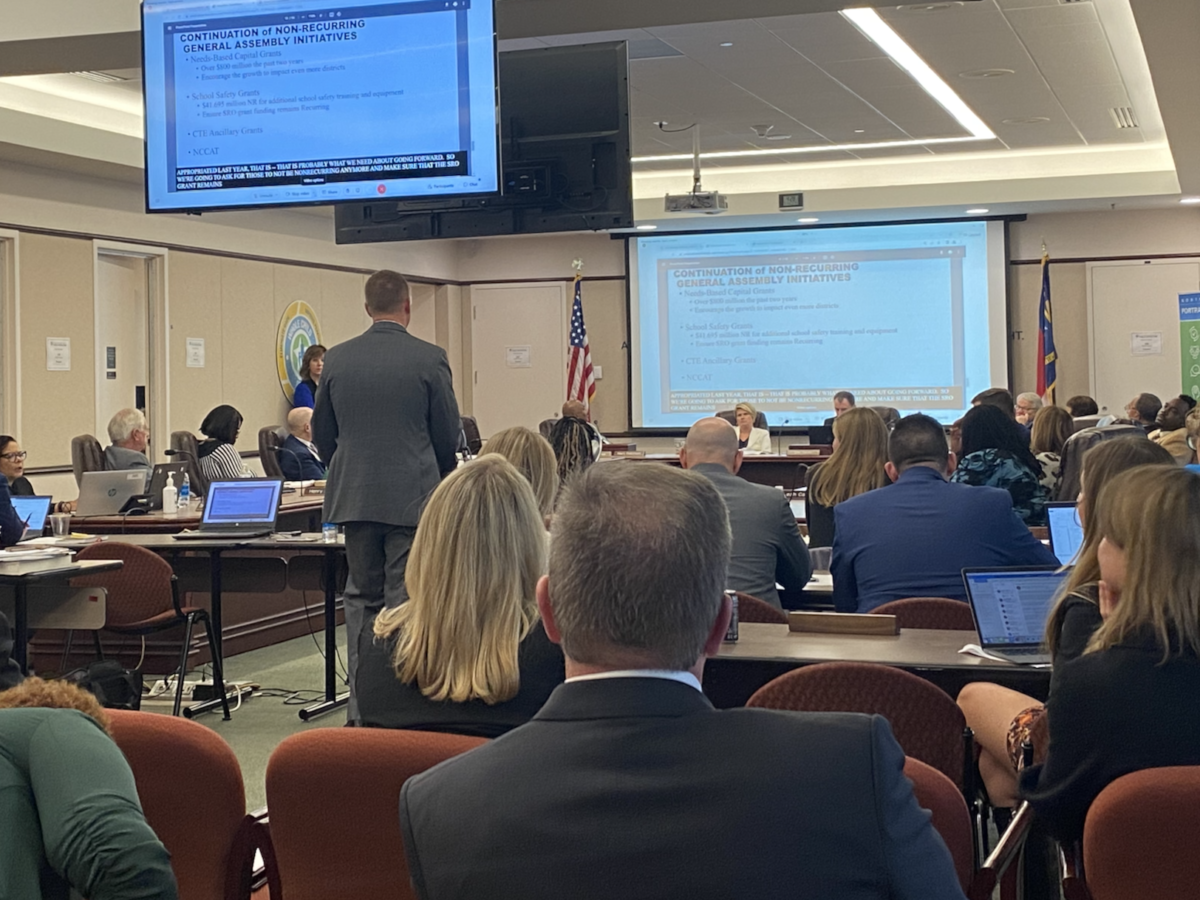

|
|
The State Board of Education took up a number of items this week, including the next steps in moving forward with a licensure and teacher pay reform proposal.
Board attorney Allison Schafer took the Board through the many legislative actions that would be needed in order for a pilot to be implemented. Those included authority to institute the pilot, giving the pilot schools waivers from current licensure requirements, new “rights or duties” for the Board, and approval of funds to pay increased salaries to teachers in the pilot.
Under North Carolina’s current system, teachers are paid based on their years of experience. The new proposal would introduce different levels of licensure and corresponding pay, ranging from apprentice teachers to advanced leadership roles.
State Board Chair Eric Davis suggested during the Board meeting Wednesday that a pilot of the proposal — aimed for launch this fall — would be at a minimum two years.
“We are trying to move as aggressively as we can,” he said.
According to the presentation, if the General Assembly does make statutory changes to allow the pilot, the Board will then have to take on its own policies and possibly make changes as well.
PEPSC is slated to come back before the Board in March to talk about what Board rules and policies are needed to implement the pilot.
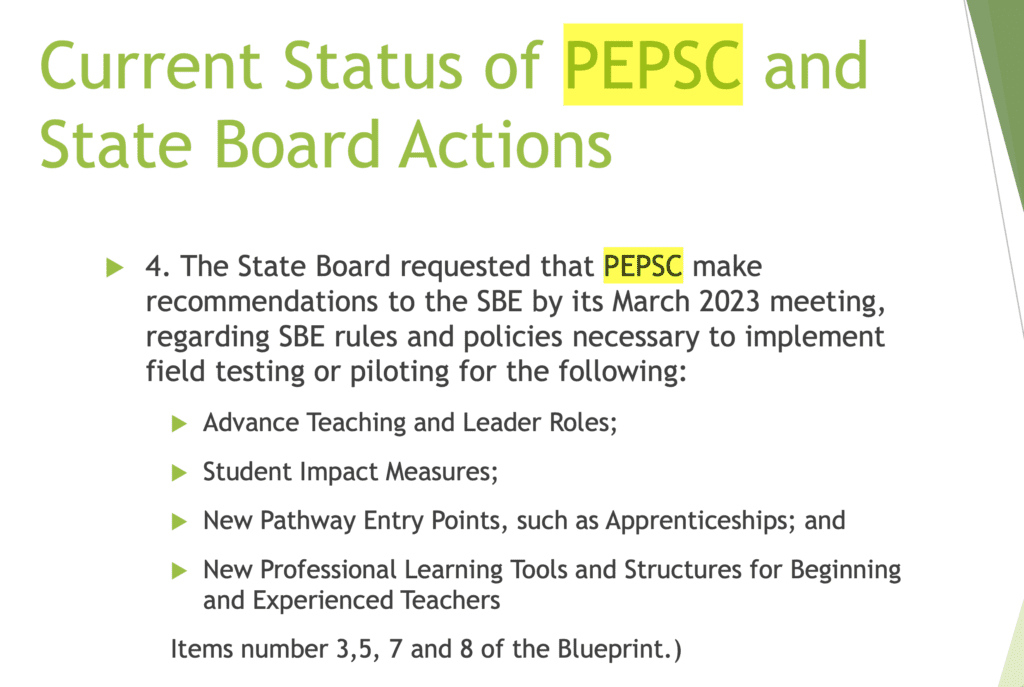

See the presentation below.
Impacts of COVID-19
The Board heard the findings of an investigation into COVID-19’s impacts on students, as well as the effectiveness of summer programs aimed at helping them recover educationally.
Legislation passed by lawmakers in 2021 required every district to offer a summer program that year focused on at-risk youth to help them deal with COVID-19-related learning loss.
Generally, in the 2020-21 school year — the depths of the pandemic — students were more chronically absent, failed courses more, and had to repeat grades at higher rates than normal.
A little more than half of elementary and middle school students went to at least three-fourths of all summer program days, and about 25% of elementary students and 40% of middle schoolers increased a grade level or more in the online assessment tool iReady.
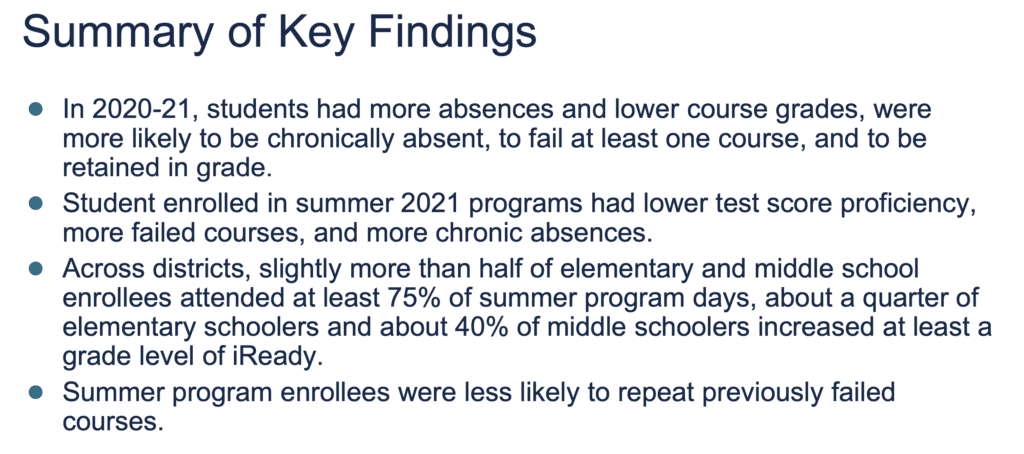

Below, you can see that students in elementary, middle, and high school all had increases in days absent and percent chronically absent during 2020-21 than prior to the pandemic.
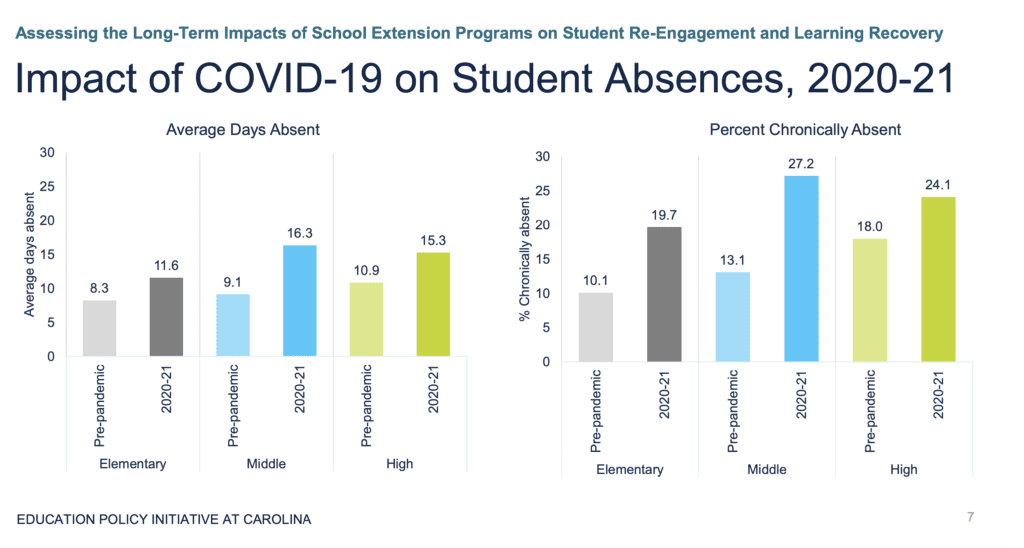

Below, you can see the increases in percent of students failing at least one grade during the pandemic versus before.
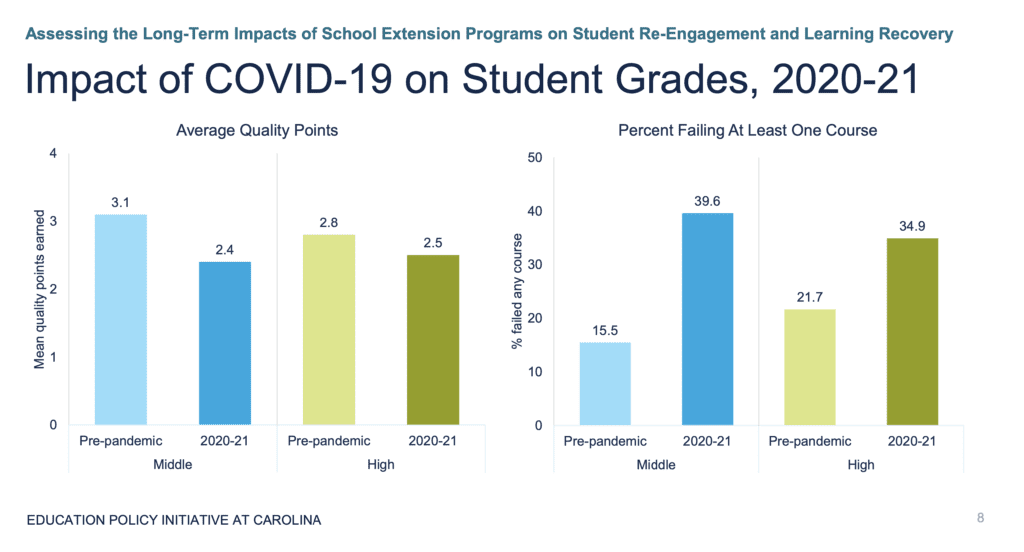

And below, you can see the increase in grade retention during the pandemic versus before.
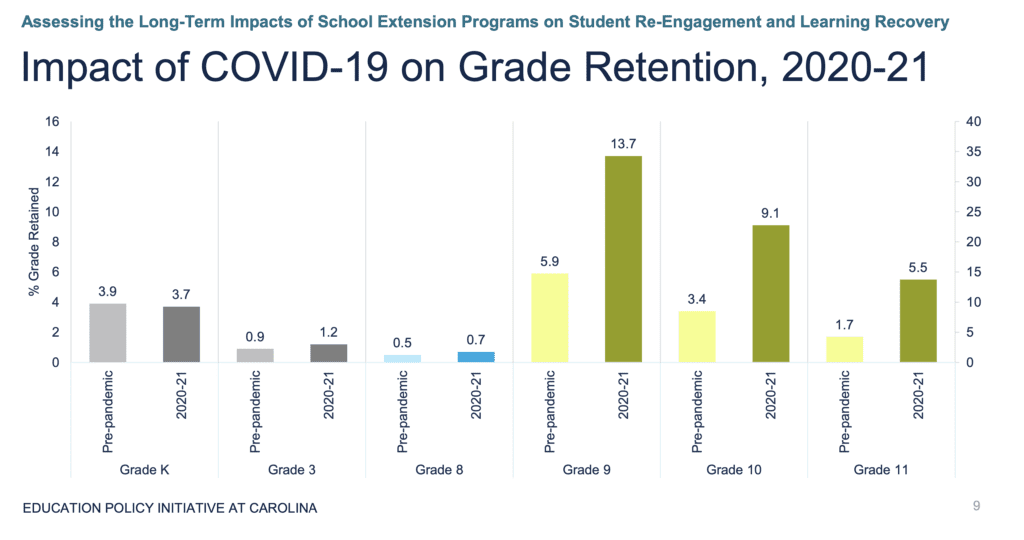

Below, you can see the short-term success summer remediation programs had on students who participated, both in grade-level gains as well as retention.
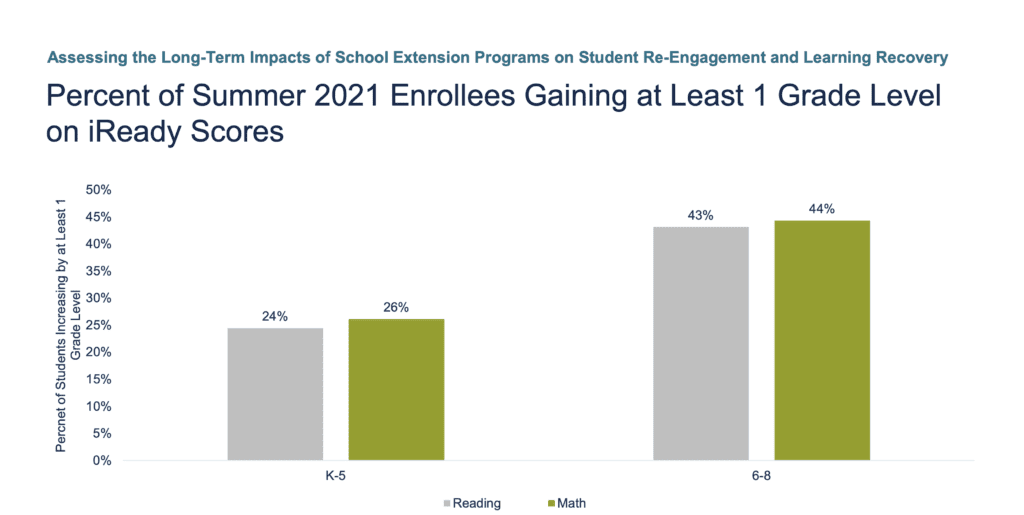

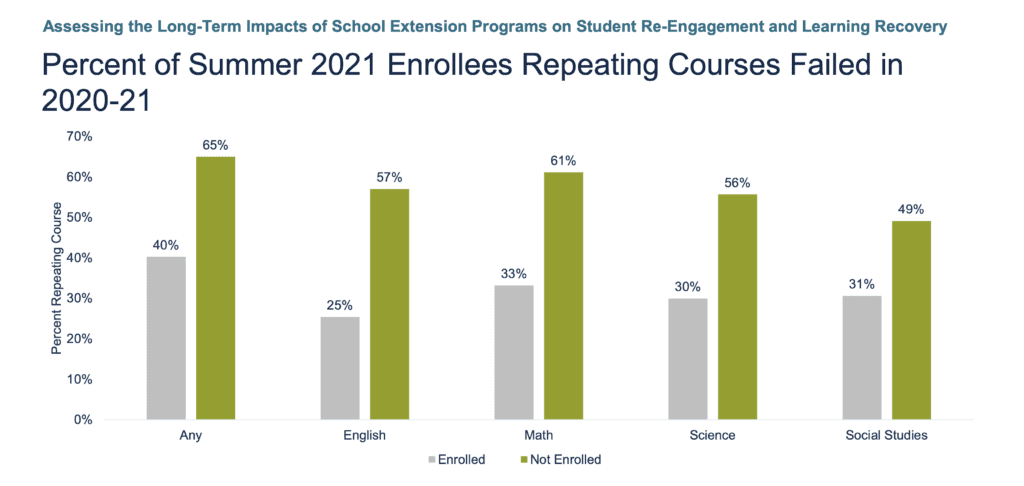

“Nobody had pulled off summer programming for the entire state like we did in North Carolina,” said Deputy State Superintendent Michael Maher during the presentation. “… We need to recognize … that districts didn’t have a lot of time to do this, and I think the results bear out that the work that they did was actually pretty exceptional.”
See the full presentation below.
Legislative agenda
The State Board also heard an update on and approved its legislative priorities for the upcoming legislative long session that is set to begin this month. The plan is largely unchanged from previous iterations, including money for early learning, school nurses and social workers, and to eliminate the co-pays for reduced-price meals for students.
The additions below are the only new ones.
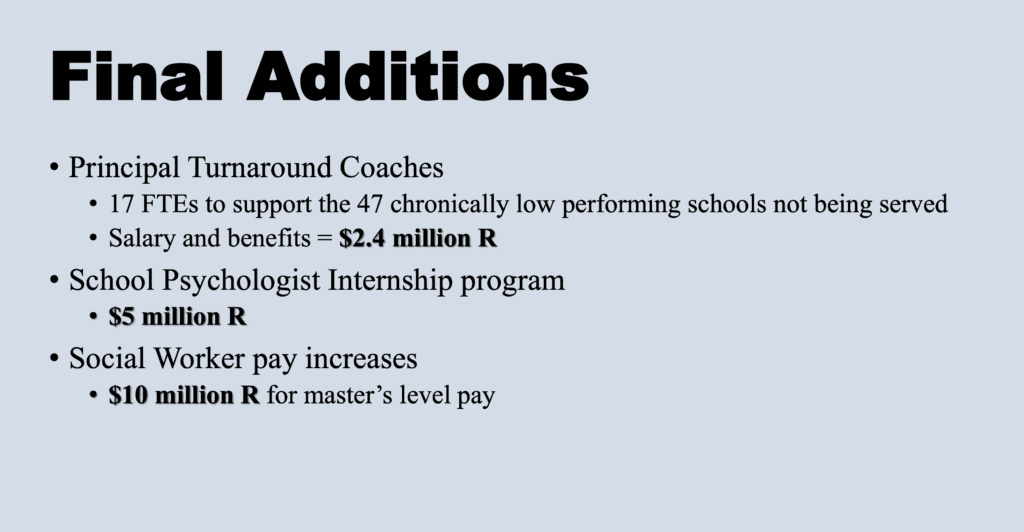

State Superintendent Catherine Truitt said the funding for additional principal turnaround coaches is part of a new school turnaround model that she will explain to the Board further in February.
She said that currently, the state has 14 principal turnaround coaches aimed at its chronically low-performing schools, and the additional 17 would help bolster those that DPI currently is unable to reach.
The motion approved by the Board also includes a request that Gov. Roy Cooper and the General Assembly support the full implementation of the Leandro comprehensive plan. You can read more about what that plan is and the court case revolving around it here.
A recent affidavit in that case stated that about $257 million in year two and $420 million in year three remains to be funded in the comprehensive plan by lawmakers. Those funding amounts are the current points under consideration in the court.
Here is that motion:
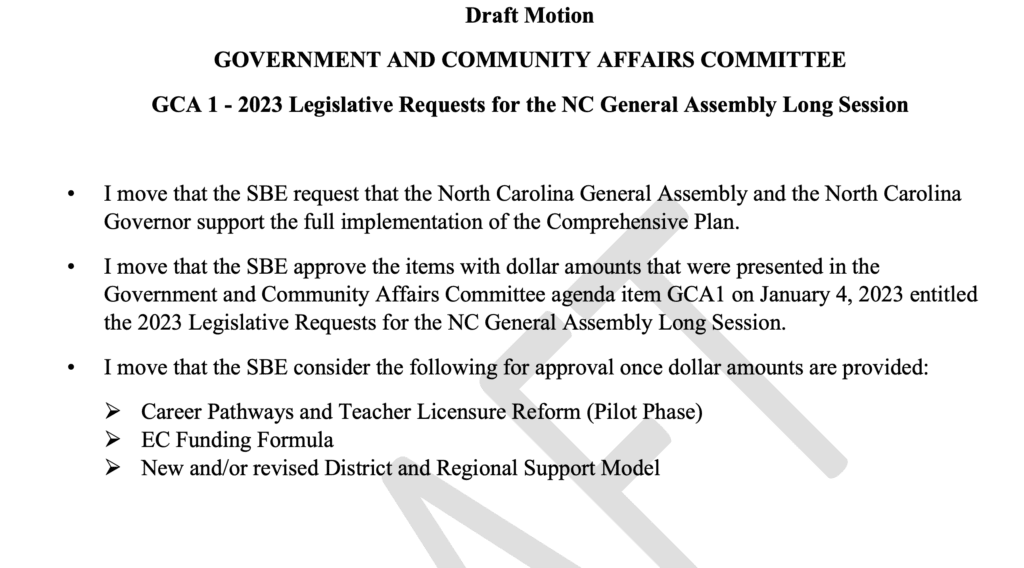

The approved motion also states the Board’s intention to consider the teacher licensure and pay reform pilot for approval once the cost is determined.
See the presentation below.
Measuring enrollment
The Board saw a report that will be sent on to lawmakers laying out how the state could fund education using a new measure of enrollment. Lawmakers recently asked DPI to study how it could use Full-Time Equivalency (FTE) instead of Average Daily Membership (ADM), which essentially stands in as a measure of the number of students in schools.


FTE is a way to measure the amount of course hours taken by students. This measure is typically used to fund institutes of higher learning, such as universities and community colleges.
At the direction of lawmakers, DPI came up with a formula to calculate FTE for public school students. The formula is that 300 minutes of instruction would equal 1 FTE.
Included in the report are spreadsheets that show the number of students in the state and the FTE of those students by school and grade level, as well as more details.
Those spreadsheets aren’t yet available, but they are expected to be released in the coming days.
One of the big concerns about any possible change from funding based on ADM versus FTE is the impact it would have on public school students enrolled in community college classes.
When the Board heard about this in April, Brent Williams, Lenoir County Public Schools superintendent and 2021 Superintendent of the Year, highlighted the potential impact a change might have on Career and College Promise, the program by which high school students can take classes at community colleges.
He said the program wasn’t always as successful as it is now because public schools and community colleges used to have to compete for credit for their students. But, he said, the relationship improved when both were able to get ADM (for public schools) or FTE (for community colleges) for the same student.
There has been no indication yet from lawmakers about the purpose of having the Board report out on a potential change from ADM to FTE, though for years lawmakers have explored possible alternative means of funding students.
See the full presentation below:
Strategic plan
The Board also heard about feedback it received on its strategic plan during a Board work session in 2022. The presentation sparked a discussion Wednesday about one objective, which seeks to decrease the number of exclusionary discipline practices by subgroup.
Lt. Gov. Mark Robinson, a Republican who has been outspoken about the need to give educators the authority to remove disruptive students from the classroom, asked about the meaning behind the objective.
Board Member James Ford explained that suspensions and expulsions disproportionately fall on students of color.
“The objective here is to create parity,” he said.
Chair Davis added that if students aren’t in the classroom, for whatever reason, they can’t learn.
Robinson said it concerns him when a kid is in school misbehaving and preventing learning from happening, then he alluded to knowing the origin of that type of behavior.
“I think I know where a lot of those things come from because I’ve come from them. I’ve seen them,” he said. “That’s all I’m going to say. I’m going to leave it at that.”
Truitt acknowledged the need to ensure students of color aren’t disproportionately punished, but said the other side of the argument needs to be addressed as well.
“I agree with everything that’s being said … the tension that needs to be solved is that we know from teacher surveys that teachers are very frustrated that there are these blanket statements that they are not to suspend students,” she said, adding: “I think there is a balancing act that needs to occur.”
See the full presentation on the strategic plan below.




